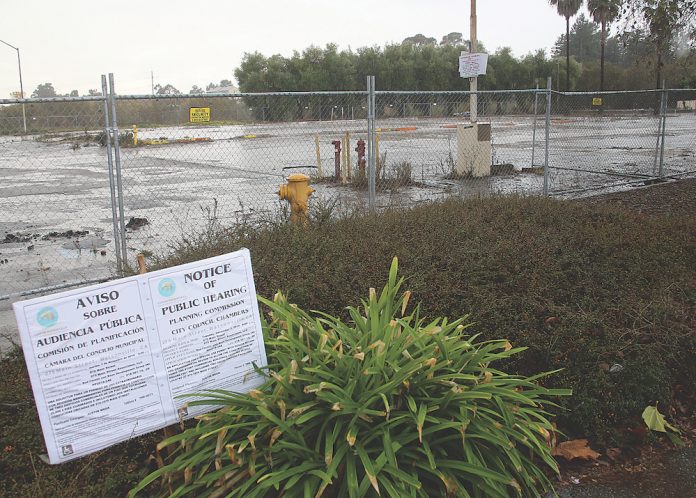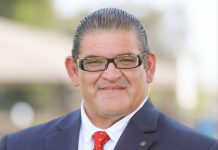
WATSONVILLE—The proposed business park at 975 Main St. will move forward despite drawing the ire of the Watsonville City Council at Tuesday night’s meeting.
The Council via a 4-3 decision approved Santa Cruz Seaside Company’s appeal of the Planning Commission’s no vote from late last year that halted the development on the city’s busy artery.
Mayor Rebecca Garcia and councilmen Francisco “Paco” Estrada and Aurelio Gonzalez voted no despite the possible threat of legal action from the developer’s representatives, The Pelosi Law Group.
That San Francisco-based firm submitted a nine-page letter to the Council in mid-January contesting that the proposed project fit Watsonville’s General Plan, and that it would not result in any significant impact on the City’s push to become environmentally conscious or its fight to make its streets safer for pedestrians and cyclists.
“We brought forward a project that aligns with the rules of the playing field as defined by many of the City’s documents and ordinances,” said Kris Reyes, Santa Cruz Seaside Company’s director of strategic development and external affairs.
The majority of the Council had concerns about the project, which would create roughly 20,000 square feet of commercial space over three 1-story buildings on the currently-barren 3.05-acre site at the intersection of Main Street and Auto Center Drive—the former home of Mi Ranchito Supermercado and Taqueria Mundial.
Estrada, Gonzalez and councilwoman Ari Parker questioned a traffic impact analysis that said the development would result in 224 fewer trips than previous land uses. They said that it did not correctly represent the traffic generated by previous tenants, and underplayed the impact it would have on one of Watsonville’s busiest intersections.
Estrada and Garcia also took issue with the two drive-thrus—one to be used by Chipotle and the other by Starbucks, according to Reyes—planned for the project.
“I’m not against Chipotle, I’m not against Starbucks, it’s just the drive-thrus,” Estrada said. “What messages are we sending? We build green lanes and we want people to ride their bikes, but then we’re adding two more drive-thrus.”
Councilman Felipe Hernandez said Tuesday was a “no-win” situation, and Parker called it a “worst-case” scenario. If they denied the project, the City would have most likely faced legal action. And they said approval did not align with the Council’s current or future goals for Watsonville, which is still working off a General Plan from 2005.
“[The project is] good for Watsonville. I know people don’t want to hear it,” Parker said. “We have parks we need to improve on and the way we do that is we produce revenue. So here is the balance. I don’t like it. I know it’s good for Watsonville in the end.”
Hearing those concerns over the nearly two-hour discussion, Reyes agreed to amend the appeal to include a six-month checkup for the first three years of the project in which the company, which owns and operates the Santa Cruz Beach Boardwalk, would meet with City staff to determine if additional work is needed to address unforeseen safety issues.
“I know that’s not a solid, ‘we’ll do x and y,’ but it’s at least a commitment from us to remain engaged in this conversation about how we can make pedestrian and bicycle access better,” Reyes said.
The Planning Commission unanimously voted against the project in December because of the city’s ongoing struggles with obesity and pedestrian and cyclist safety.
That vote spurred a proposed temporary ban on new drive-thrus that failed via a 5-2 vote at a City Council meeting last month.
Garcia and Estrada voted for the ban, but their peers did not believe drive-thrus created a current and immediate threat to public health, safety or welfare.
After denial from the Planning Commission, the Santa Cruz Seaside Company made small adjustments to its proposal such as working with Caltrans to make the traffic lights at the intersection friendlier for pedestrians and also widening the sidewalks along the property.
Those changes did little to sway the opinion of the public in attendance on Tuesday. A half-dozen community members spoke against the project. All said they believed it would create more fast-food waste, increased emissions from idling cars and more traffic.
“The Planning Commission got it right,” said Steve Trujillo.












